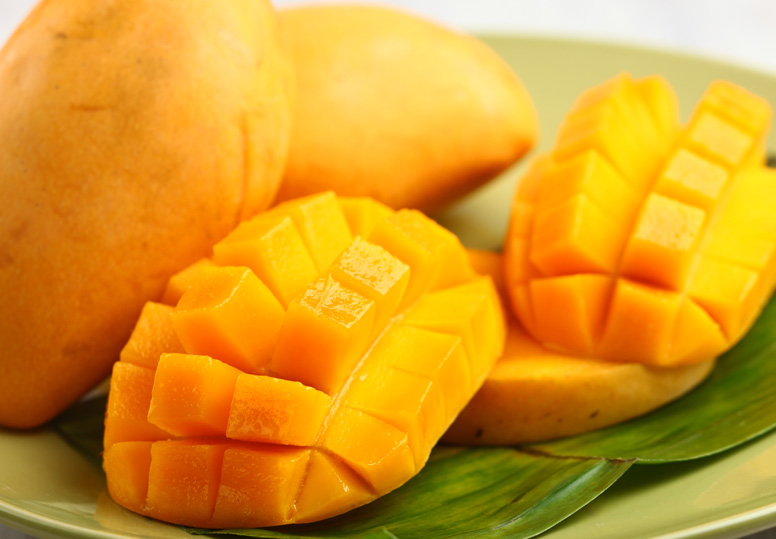Mangoes are considered to be the “crown jewel” of all fruits.
Apart from their scrumptious tropical flavor, mangoes are described to contain a host of nutrients which health promoting qualities.
As a result, they have been known as a favorite. Without further ado, below are the ten reasons why you should be eating mango.
Mango Nutrition Facts
1. Good for the skin
The mango fruit is a major source of vitamin A.
According to the National Institute of Health Dietary Supplements, vitamin A acts as a skin cleanser. It works by keeping the skin and mucous membranes strong.
Mangoes also clear clogged pores and further eliminate pimples.
2. Antioxidant properties
The mango fruit is also an excellent source of antioxidant compounds like alpha carotene, beta-cryptoxanthin and beta-carotene. Antioxidants work by protecting the body from various harmful diseases.
The mistake that most people make is to skip a mango and take an antioxidant supplement.
Antioxidant supplements do not have the same nutritional value as fresh fruits.
3. Control of cholesterol levels
Mangoes are rich in fiber, pectin, and vitamin C.
These components are essential in lowering serum cholesterol levels, more specifically the lipoprotein.
The lipoprotein can dangerous when it comes to acting as the bad cholesterol for the body.
4. Mango is good for the heart
Fresh mango acts as a source of potassium.
Potassium is a very important component to body fluids because it helps in controlling heart rate and blood pressure.
5. Prevents cancer
The American Society for Nutritional Sciences reports that the antioxidant properties, especially the beta-carotene, protects the human body from breast, leukaemia and prostate cancer.
Beta-carotene works together with other compounds like astragalin, fisetin, methylgallat and gallic acid to ensure that the body is protected from cancerous tumors.
6. Helps in digestion
Mango contains enzymes that are beneficial in breaking down protein.
This super fruit is also rich in fiber which is the main element that helps in digestion.
7. Production of red blood cells
Mangoes contain moderate levels of copper. Copper acts as a co-factor for many vital enzymes.
These include c-oxidase, cytochrome and superoxide dismutase.
Copper is also essential for the production of red blood cells.
8. Helps in retention of memory
This super fruit is rich in glutamine acid. Glutamine acid is effective in improving brain cells.
If you want to improve your concentration and memory level, mango is the fruit to take.
9. Alkalizes the body
The traces of tartaric acid, citric acid and malic acid are primarily necessary in maintaining the alkali reserve of the body.
10. Regulates diabetes
Mango leaves have been used for a long time as a traditional remedy to diabetes. The leaves help in normalizing insulin levels within the blood.
Are you suffering from diabetes? Take four to six mango leaves and boil in two cups of water. Soak it through the night and drink the filtered concoction in the morning.
In order to maintain a healthy lifestyle, it is important to take a variety of fruits every day.
Mango is a versatile fruit packed with numerous nutritional benefits.
The mango fruit contains more than 20 different types of minerals and vitamins. Consuming a single mango is like taking ten fruits combined.
To top it up, each serving is said to be fat, sodium, and cholesterol-free.
- READ MORE




